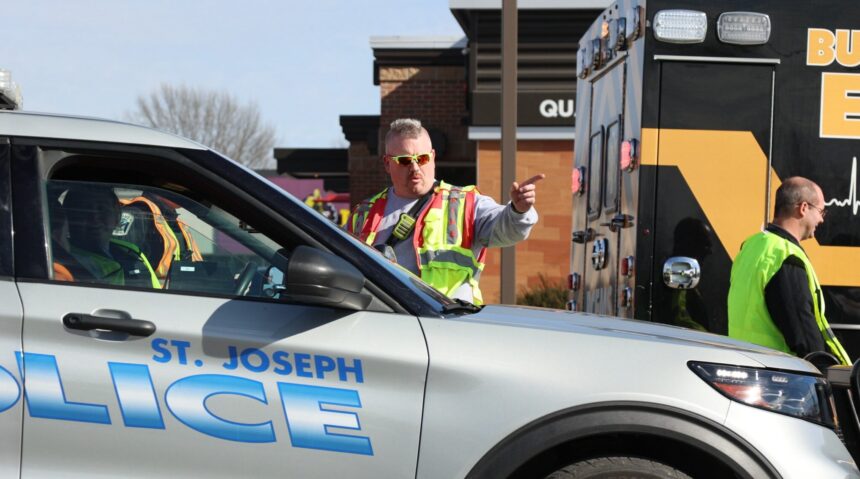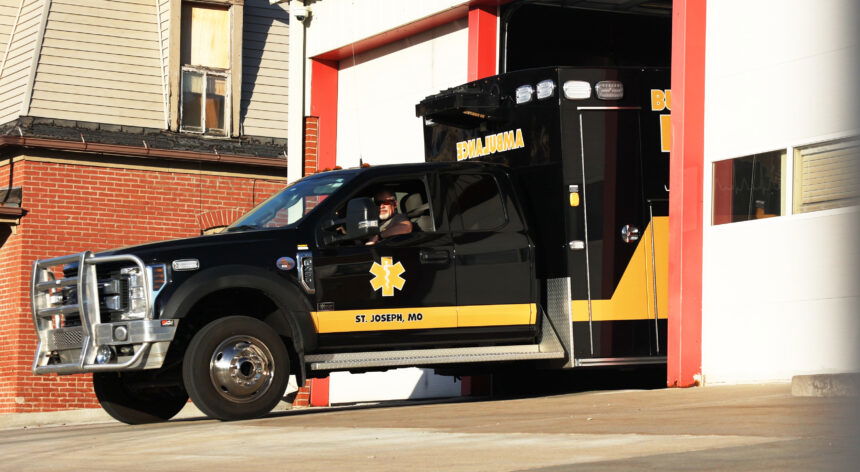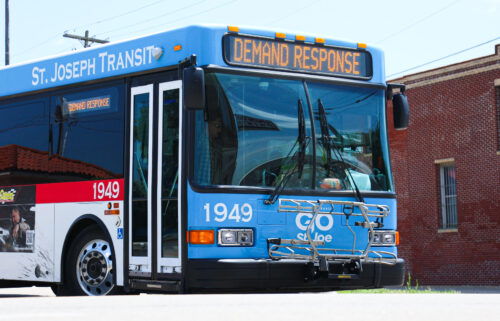Missouri OKs free college tuition for firefighters, police, EMTs with new law




ST. JOSEPH, Mo. (News-Press NOW) -- Missouri is pioneering new opportunities for a wide range of public safety personnel to further their education with free tuition awards for eligible members and their dependents.
Public safety personnel with at least six years of service will now be eligible for free college tuition awards worth up to 100% of their resident tuition charges under a new law signed this July by Missouri Gov. Mike Kehoe, called the Public Safety Retention and Recruitment Act.
The new law applies to a wide range of positions, including firefighters, EMTs, police, sheriff's officers, advanced EMTs, paramedics and telecommunicator first responders residing in Missouri, and requires them to commit to a university or community college within the state to receive an award.
"I think it's fantastic," St. Joseph Police Department Recruiting Officer and seven-year veteran Ethan Miles said. "I have not seen a whole lot of other places that offer anything close to what this offers."
Miles said he receives questions from prospective hires about tuition assistance nearly every day, praising the law for opening new doors for so many public safety officers to either finish or pursue their degree, boosting their qualifications and benefitting departments and communities as a whole.
For active public safety members seeking awards, the law is designed to ensure that degree programs are related to public safety and public safety-oriented fields. Individuals who have already earned a baccalaureate degree are ineligible to use the tuition award to earn another degree.
“I think it helps keep people motivated to just keep learning … It's extremely important to push yourself and continue to educate yourself," he said. “Any of your cyber certifications, that kind of thing is going to help you when it comes to detectives, your criminal justice is going to be basically moving up in ranks."
He said the law comes at a strong time for the department's recruiting efforts following the hire of eight new officers, including seven from the Law Enforcement Academy in July. He's hopeful the measure will become a successful tool to assist with recruiting potential officers from outside the state.
"I've seen more of an uptick in the past couple of months of people just wanting more information and interested in joining than I have the entire time I've been doing recruiting," Miles said.
Additionally, the law states that a legal dependent of public safety personnel with at least ten years of service is eligible for a tuition award under similar parameters. They must commit to a Missouri institution and reside in the state for the next five years, but degree programs do not have to be related to public safety.
Public safety personnel and their legal dependents are eligible for tuition awards for up to five consecutive years.
"I actually have a son that's starting college in August," Jeff Werner, a captain and 15-year veteran of the St. Joseph Fire Department said. "This would help my family household tremendously."
Werner is optimistic the law will benefit not just St. Joseph but the entire state and public safety personnel, creating a stronger pool of candidates for a range of positions that departments often struggle to fill.
“I'm glad it's a first responder thing because recruiting has always been a big issue, finding those qualified applicants. So having a state backed resource would be beneficial for our department," he said.
According to the law, tuition awards will not be issued if doing so would require an institution of higher education to create additional seats exceeding program capacity.
Law enforcement officials said some key questions remain on how the program will work, including how much will be allocated from the state.
The act states that in the event that funds are insufficient to provide tuition awards for all eligible applicants, public safety personnel shall be in the first class of applicants to receive the awards, and dependents shall be in the second class.




